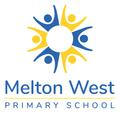Assistant Principal Report

Dear Parents and Carers,
How to build your child’s literacy skills from Grades 3-6
Helping your child to speak and listen
Talking to your child
As your child moves through primary school, they will speak with greater fluency and with a greater knowledge of the world.
Some tips to foster more fluent speaking include:
Continue to involve your child when discussing everyday activities, such as grocery shopping, gardening, cooking dinner, collecting mail from the mailbox, doing housework, and travelling in the car or bus.
Try to ask your child specific questions about their day. A general question like 'how was your day?' will likely get a single-word response of 'good.' Ask specific questions like 'what is the book you are reading in class about?' or 'what did you do at lunchtime today?'
Involve your child in your discussions about the day’s events or current events. Ask their opinion. This helps them understand different perspectives and increases their vocabulary.
Use simple prompts to encourage the child to expand upon responses, such as, 'What makes you say that? What happened after that? What did you think about that?'
Show a genuine interest in your child’s reading, writing and viewing of all types of texts. Talking about texts can create meaningful discussions and help your child see them as important.
Show interest in topics your child is studying at school. These can be a great springboard into discussions.
Encourage your child to discuss their everyday problems and feelings.
Use questions and discussion to explore other people’s feelings. This will help your child to develop empathy for others.
Use questions and discussion to broaden your child’s experience and knowledge of the world, particularly during new experiences or on outings.
Discussing news and current events
As your child gets older, they become more aware of news and current events. Discussing news and current events can enrich your child’s understanding of the world.
Questions are an effective way to encourage your child to think critically about an event and can help foster empathy. Questions also help your child to develop oral fluency when discussing social issues.
Questions you might ask when discussing a news story or current event include:
What do you think caused the event?
How do you think people will be affected?
Is it fair?
Why do you think people think that/do that?
Could there be another side to this news report?
What do you think will happen next?
How could the problem be fixed?
Some other activities to develop your discussion:
Encourage children to find the good in bad or unhappy news stories by looking out for the people or organisations who are offering aid, e.g. 'Who are the helpers in this event?'
Read several articles together on the same issue to get different opinions. Then discuss the different opinions.
Have a debate on a topic, with you and your child taking different sides of the issue.
Download and listen to podcasts on an issue and discuss.
Discuss different 'What if?' scenarios. This will help develop your child’s problem-solving and imagination.
Many news items can be distressing or confusing for children. Ensure you select items that are appropriate for your child. There are some excellent podcasts and online programs that provide the news in an age-appropriate manner:
Taken from: How to build your child's literacy skills from Grades 3 to 6 | vic.gov.au
Sarah Mills
Assistant Principal

